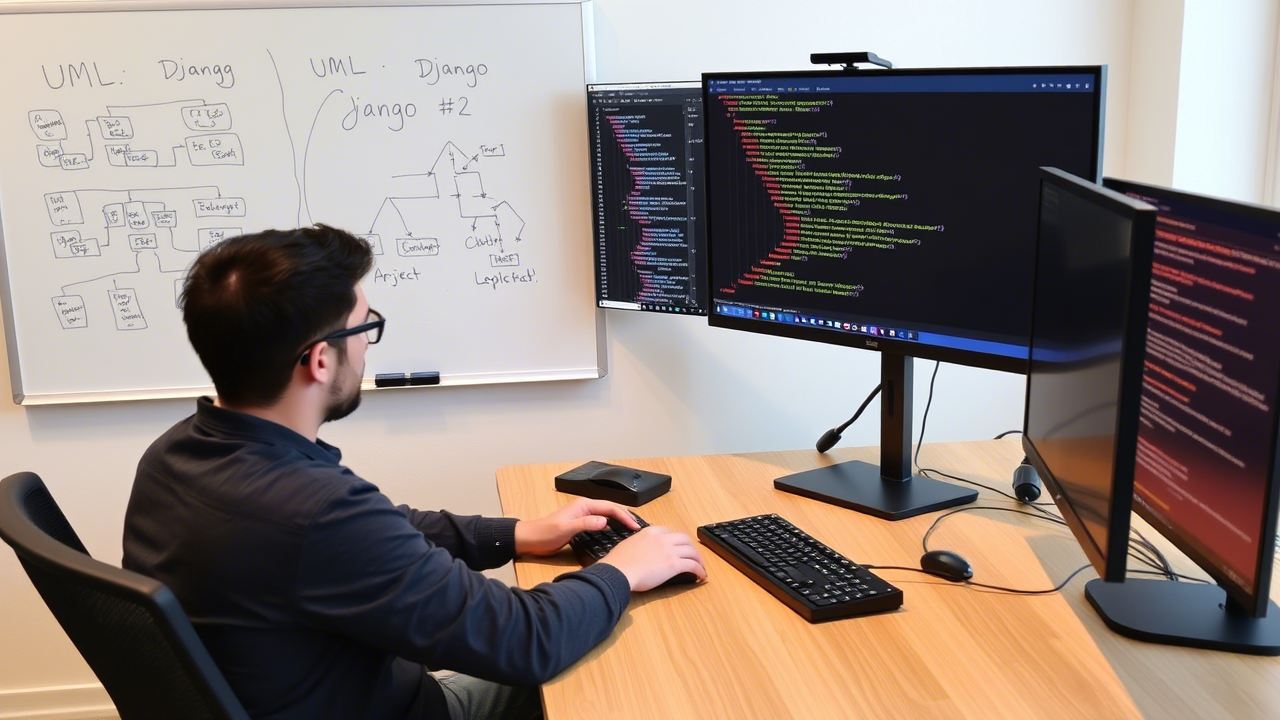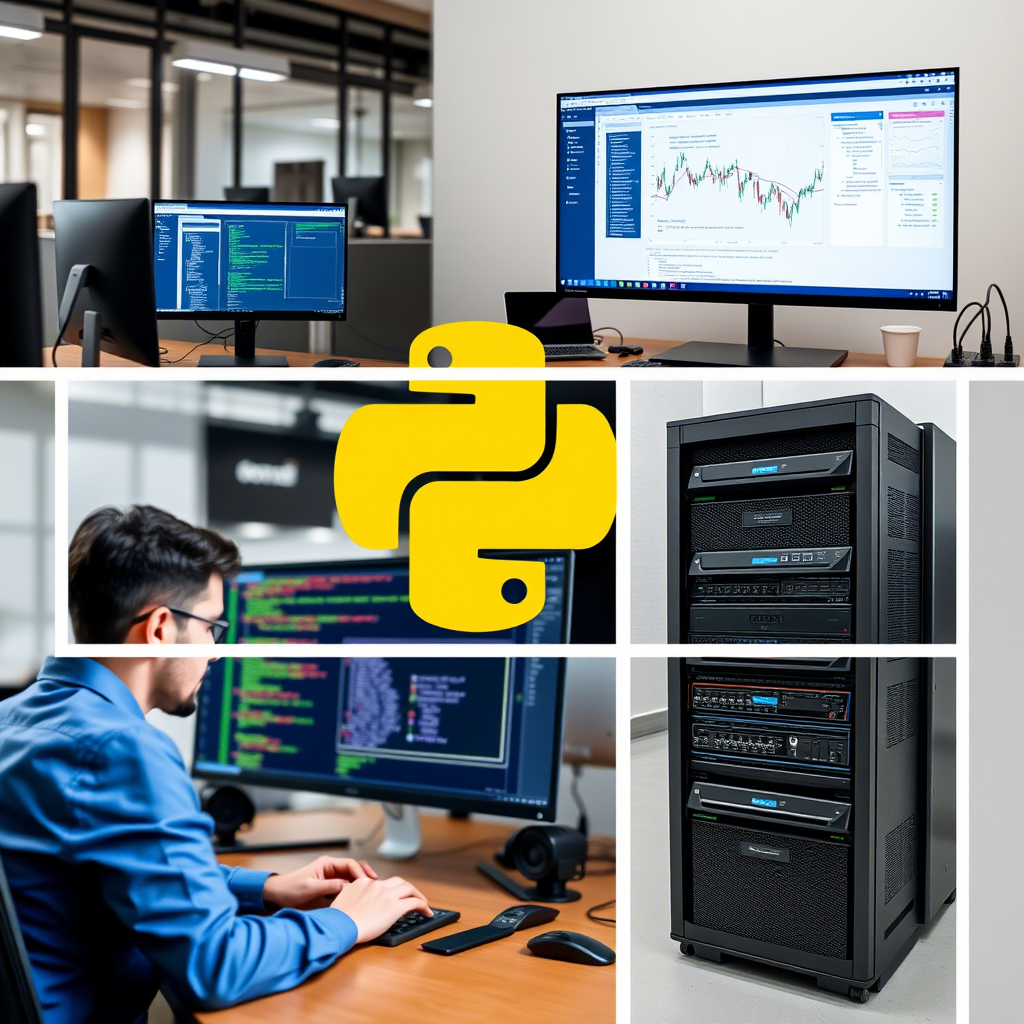Python has long been a favorite among developers due to its versatility, readability, and robust ecosystem. For professionals seeking to push their skills to the next level, engaging in advanced Python projects is an excellent way to deepen your understanding and showcase your expertise. These projects not only refine your technical abilities but also help solve real-world problems across industries like data science, machine learning, web development, and automation. In this article, we will explore some of the most compelling advanced Python projects for professionals, offering insights into how these initiatives can enhance your career trajectory and keep you ahead in the competitive tech landscape.
Building Scalable Web Applications with Django
Django, one of Python’s most powerful frameworks, is widely used to create scalable and secure web applications. For professionals aiming to master advanced Python projects, building a complex web application using Django offers invaluable experience. The framework’s built-in features, such as authentication, ORM (Object-Relational Mapping), and admin panels, allow developers to focus on creating unique functionalities rather than reinventing the wheel. By working on a project that integrates multiple APIs, implements user roles, and handles large datasets efficiently, you can demonstrate your ability to manage both frontend and backend processes seamlessly.

Moreover, Django’s scalability makes it ideal for projects requiring high performance under heavy traffic loads. Professionals can experiment with caching mechanisms, database optimization, and asynchronous task queues like Celery to ensure smooth operation. For instance, developing an e-commerce platform with real-time inventory updates or a social networking site with dynamic content delivery can highlight your proficiency in handling advanced challenges. Such projects not only strengthen your portfolio but also prepare you for enterprise-level development scenarios where efficiency and reliability are paramount.
Data Science and Machine Learning Projects
Data science and machine learning represent two of the most exciting domains where advanced Python projects can truly shine. Leveraging libraries like Pandas, NumPy, Scikit-learn, and TensorFlow, professionals can tackle intricate problems ranging from predictive analytics to natural language processing. One compelling project idea is to build a recommendation engine using collaborative filtering techniques. By analyzing user behavior and preferences, you can create systems that suggest products, movies, or articles tailored to individual tastes. This type of project not only demonstrates your ability to work with large datasets but also showcases your understanding of algorithms that drive personalization technologies. Another impactful project involves developing a sentiment analysis tool using NLP (Natural Language Processing). With libraries like NLTK or SpaCy, you can preprocess text data, extract meaningful features, and train models to classify emotions in customer reviews, social media posts, or survey responses. Such tools are invaluable for businesses looking to gauge public opinion or improve customer satisfaction. By incorporating advanced techniques like deep learning and transformer-based models (e.g., BERT), you can push the boundaries of what traditional NLP systems can achieve. These projects not only sharpen your technical skills but also position you as a specialist capable of deriving actionable insights from unstructured data.
Automation and DevOps Solutions
Automation is at the heart of modern software development, and Python excels in creating tools that streamline repetitive tasks. For professionals, designing advanced automation scripts can significantly boost productivity and reduce manual errors. One practical project involves creating a CI/CD pipeline orchestrator using Python. By integrating Jenkins, Docker, and Kubernetes APIs, you can automate the deployment process, ensuring that code changes are tested and deployed seamlessly across environments. This type of project highlights your ability to bridge development and operations, making you a valuable asset in any DevOps team. Another intriguing area is infrastructure-as-code (IaC) automation. Using Python libraries like Boto3 for AWS or Terraform wrappers, you can develop scripts to provision cloud resources dynamically. For example, automating the setup of virtual machines, databases, and load balancers based on predefined configurations can save organizations significant time and costs. Additionally, implementing monitoring and alerting systems using tools like Prometheus or Grafana further enhances your project’s value. These initiatives not only demonstrate your technical prowess but also underscore your commitment to optimizing workflows and improving operational efficiency. Beyond automation, Python’s role in cybersecurity cannot be overlooked. Developing security auditing tools is another advanced project that professionals can undertake. For instance, creating a vulnerability scanner that identifies weaknesses in web applications or network configurations can help organizations mitigate risks proactively. By leveraging Python’s extensive libraries, such as Scapy for packet manipulation or Requests for HTTP testing, you can design robust solutions that detect potential threats. These projects not only showcase your problem-solving skills but also align with the growing demand for cybersecurity expertise in today’s digital landscape.
Game Development and Graphics Programming
Game development is a fascinating avenue for professionals exploring advanced Python projects, offering a blend of creativity and technical challenges. While Python may not be the first choice for AAA game titles, it excels in prototyping and developing smaller-scale games with rich mechanics. Libraries like Pygame provide a solid foundation for crafting 2D games, allowing developers to focus on gameplay logic, physics simulations, and graphics rendering. A compelling project could involve creating a physics-based puzzle game where players manipulate objects to solve challenges. This type of initiative tests your ability to implement collision detection, gravity effects, and responsive controls—skills that are transferable to more complex gaming projects. For those interested in 3D graphics programming, Python’s integration with OpenGL through libraries like PyOpenGL opens up new possibilities. Developing a 3D modeling tool or a simple ray tracer can deepen your understanding of rendering pipelines, shaders, and lighting models. These projects require a strong grasp of mathematical concepts such as vectors, matrices, and transformations, making them an excellent way to hone your computational skills.

Furthermore, combining Python with game engines like Unity via scripting bridges allows you to experiment with hybrid approaches, blending Python’s flexibility with the power of industry-standard tools. Such endeavors not only expand your technical repertoire but also position you as a versatile developer capable of tackling diverse challenges in interactive media. In addition to standalone games, Python’s role in game AI development is worth exploring. Creating intelligent NPCs (non-player characters) using reinforcement learning or pathfinding algorithms can elevate your project’s complexity and appeal. For instance, designing a strategy game where AI opponents adapt to player tactics requires implementing sophisticated decision-making systems. By leveraging libraries like TensorFlow or PyTorch, you can incorporate machine learning models to enhance NPC behavior, making them more unpredictable and engaging. These projects not only demonstrate your coding abilities but also highlight your capacity to innovate within the gaming industry, a field that thrives on creativity and technological advancement.
Blockchain and Cryptocurrency Applications
The rise of blockchain technology has created a fertile ground for advanced Python projects, particularly in the realm of decentralized applications (dApps) and cryptocurrency tools. Python’s simplicity and extensive library support make it an excellent choice for developing blockchain prototypes and smart contracts. One ambitious project involves creating a private blockchain network tailored for supply chain management. By leveraging frameworks like Flask for the backend and libraries such as hashlib for cryptographic hashing, you can design a system that tracks product provenance, ensures transparency, and prevents fraud. This type of initiative not only demonstrates your understanding of blockchain fundamentals but also addresses real-world challenges faced by industries reliant on secure and verifiable transactions. Another compelling project is the development of a cryptocurrency wallet application. Using Python, you can integrate APIs from popular blockchains like Ethereum or Bitcoin to enable functionalities such as balance checking, transaction history tracking, and secure fund transfers. Adding features like multi-signature support or hardware wallet compatibility further enhances the project’s complexity and utility. By incorporating encryption techniques and adhering to best practices in cybersecurity, you can ensure that your wallet application meets the stringent requirements of modern users. Such projects not only showcase your technical expertise but also position you at the forefront of the rapidly evolving fintech landscape. Beyond dApps and wallets, Python’s role in tokenomics and DeFi (Decentralized Finance) applications is another area ripe for exploration. Designing a staking platform or yield farming calculator can introduce you to the intricacies of smart contract interactions and financial modeling. For instance, creating a dashboard that simulates returns on liquidity pools or predicts gas fees based on network congestion requires integrating data analytics with blockchain protocols. These projects not only test your ability to work with cutting-edge technologies but also highlight your capacity to innovate within the decentralized ecosystem. As blockchain continues to disrupt traditional industries, professionals equipped with Python skills are well-positioned to lead the charge in shaping its future.
Scientific Computing and Research Tools
Scientific computing is another domain where advanced Python projects can have a profound impact, particularly in fields like bioinformatics, astrophysics, and climate modeling. Python’s rich ecosystem of libraries, including SciPy, Matplotlib, and SymPy, empowers professionals to tackle complex research problems with ease. One notable project involves developing a simulation tool for molecular dynamics, which is critical for drug discovery and material science. By leveraging NumPy for numerical computations and VPython for 3D visualizations, you can model the behavior of atoms and molecules under various conditions. Such a project not only demonstrates your ability to handle computationally intensive tasks but also contributes to advancements in scientific research. Another impactful initiative is creating a data analysis pipeline for astronomical observations. With Python’s integration capabilities, you can process raw telescope data, apply signal processing techniques, and generate visualizations that aid in identifying celestial phenomena. Libraries like Astropy provide specialized tools for handling FITS files and performing coordinate transformations, while machine learning frameworks can be employed to classify star types or detect exoplanets. These projects not only showcase your technical acumen but also highlight your ability to contribute to groundbreaking discoveries in astrophysics. Climate modeling represents yet another frontier for advanced Python projects. Developing a tool to simulate atmospheric conditions or predict weather patterns requires integrating differential equations, statistical models, and geospatial data. By utilizing libraries like Xarray for multidimensional arrays and Cartopy for map projections, you can create interactive dashboards that visualize climate trends over time. Such projects not only address pressing global challenges but also position you as a professional capable of bridging the gap between science and technology. Whether in bioinformatics, astrophysics, or climate science, Python serves as a versatile tool for advancing research and driving innovation.
Conclusion
In conclusion, advanced Python projects for professionals offer a gateway to mastering cutting-edge technologies while addressing real-world challenges. From building scalable web applications with Django to exploring the frontiers of blockchain and scientific computing, these initiatives empower developers to push their boundaries and stay ahead in a competitive landscape. Each project not only refines technical skills but also fosters creativity, problem-solving, and adaptability—qualities essential for success in today’s tech-driven world. By undertaking such projects, professionals can enhance their portfolios, expand their expertise, and position themselves as leaders in their respective fields. Whether you’re passionate about data science, game development, or automation, Python provides the tools and flexibility to turn ambitious ideas into impactful solutions.
FAQs
What are some good advanced Python projects for professionals?
Professionals can consider projects like building scalable web applications with Django, creating machine learning models for sentiment analysis, or developing blockchain-based decentralized applications. These projects not only challenge your technical skills but also address practical problems across industries.
How can I improve my Python skills through advanced projects?
Engage in projects that require integrating multiple technologies, such as automating DevOps pipelines, designing 3D graphics tools, or simulating scientific phenomena. These initiatives encourage you to explore Python’s vast ecosystem and apply your knowledge to solve complex problems.
Are there any prerequisites for starting advanced Python projects?
A solid understanding of Python fundamentals, familiarity with relevant libraries, and experience with version control systems like Git are essential. Depending on the project, additional knowledge of frameworks, APIs, or domain-specific tools may also be required.
Can advanced Python projects help me transition to a new career path?
Absolutely! Completing advanced projects in areas like data science, machine learning, or blockchain can open doors to new opportunities. These projects demonstrate your expertise and readiness for specialized roles in emerging fields.
Where can I find resources for advanced Python projects?
Online platforms like GitHub, Stack Overflow, and Medium often host tutorials and code repositories for advanced projects. Additionally, books like “Fluent Python” and courses on platforms like Coursera or Udemy can provide structured guidance.

